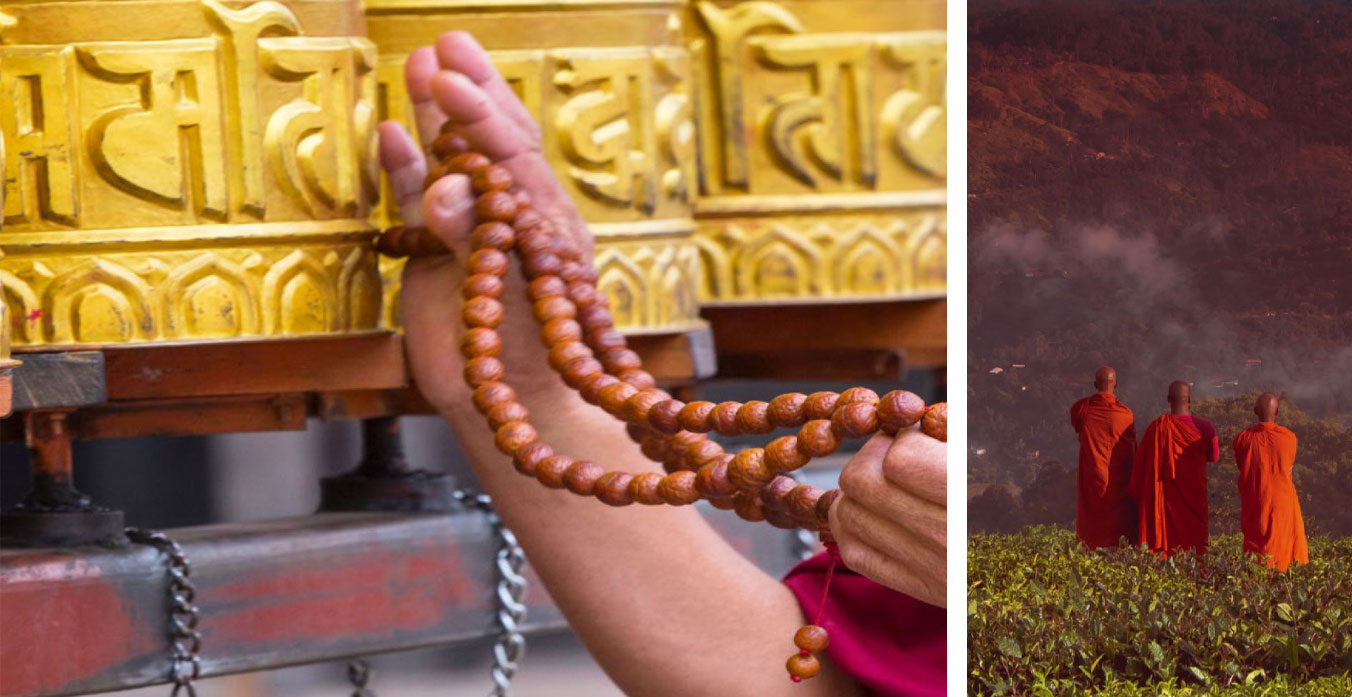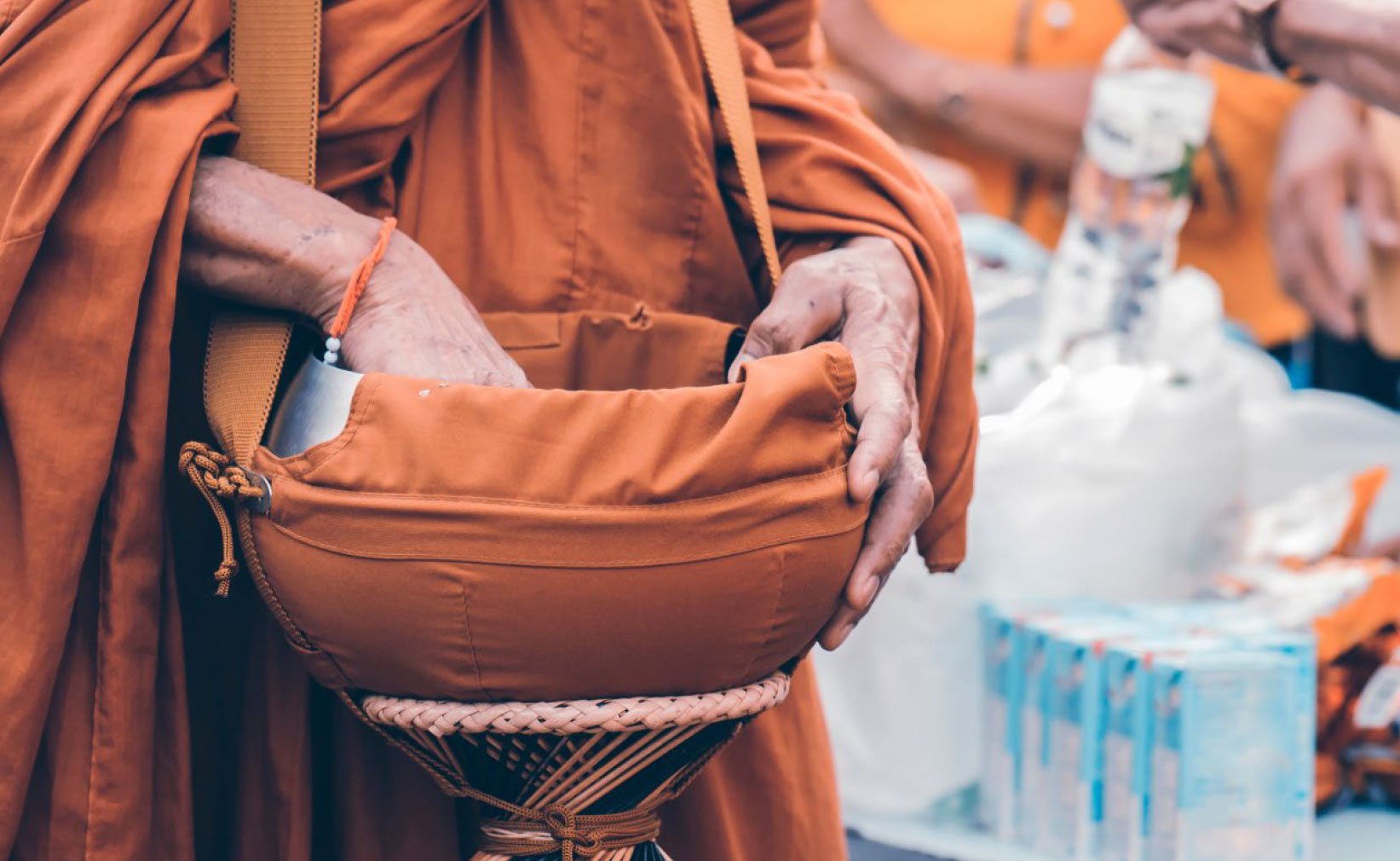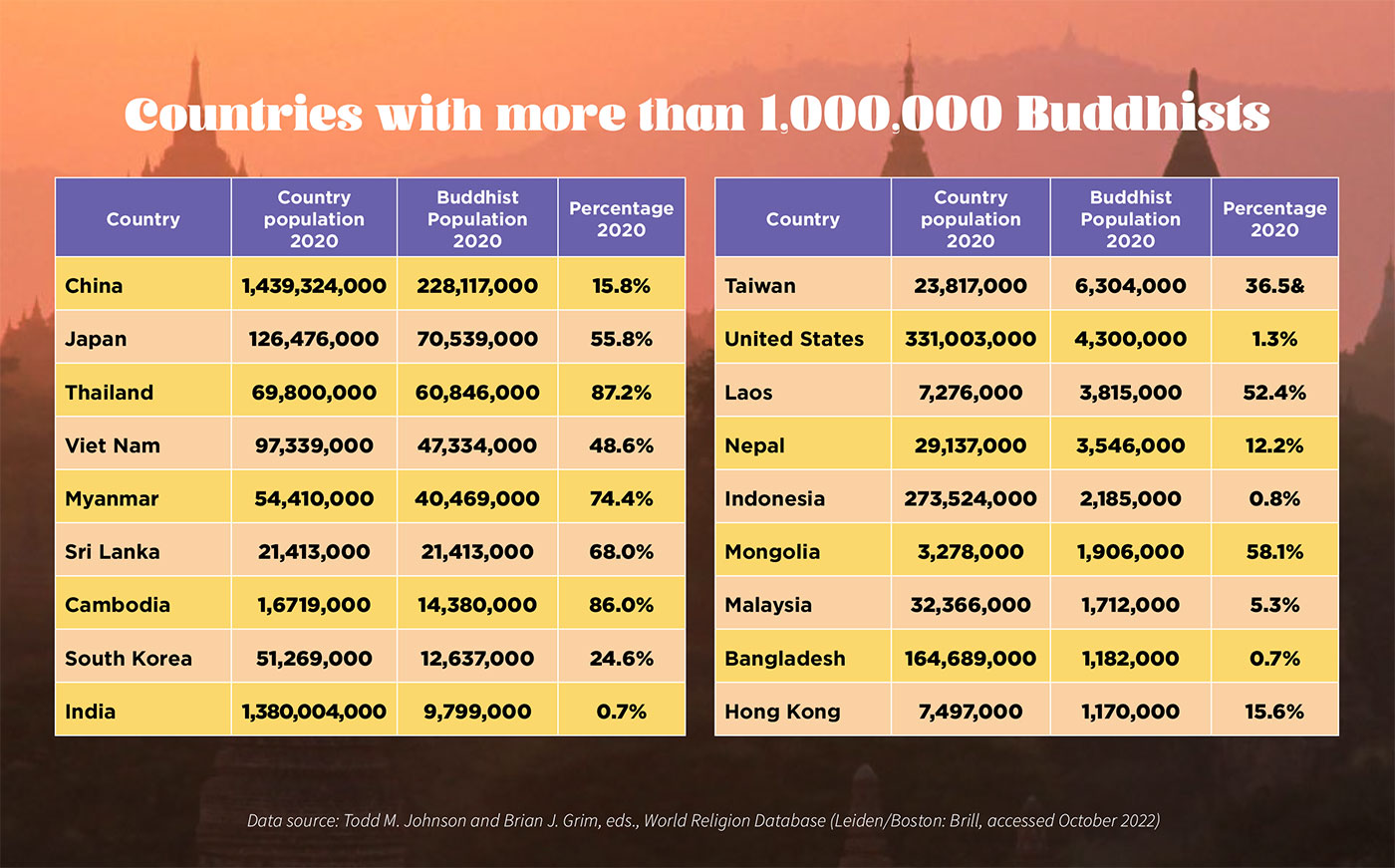“소진하지 마십시오. 연료를 공급하고 불타 오르십시오. 주의 종들이 되어 즐거운 마음으로 기다리십시오. 힘든 시기에도 포기하지 마세요. 더욱 열심히 기도해 주십시오.” 로마서 12:11-12 MSG 버전
1세기에 사도 바울이 남긴 이 훈계는 오늘날에도 쉽게 기록될 수 있습니다. 팬데믹, 우크라이나 전쟁, 중동의 새로운 전쟁, 세계 곳곳에서 예수 추종자들에 대한 박해, 경제 불황 등으로 인한 혼란이 지속되면서 손을 들고 “사람이 무엇을 할 수 있겠습니까?”라고 묻는 것은 쉽습니다. 사람이 그래?”
바울은 우리에게 답을 줍니다. 하나님의 말씀에 집중하고 그분께서 응답하실 것을 기대하며 “더욱 열심히 기도하십시오.”
이 안내서를 통해 우리는 적어도 명목상 불교도인 전 세계 10억 명의 사람들에게 하나님이 알려지도록 구체적으로 기도하도록 여러분을 초대합니다. 2024년 1월 21일부터 매일 다른 장소에서 불교 수행과 영향력에 대해 배우게 됩니다.
이 기도 안내서는 30개 언어로 번역되어 전 세계 5,000개가 넘는 기도 네트워크를 통해 배포되고 있습니다. 당신은 불교 이웃을 위한 중보기도에 1억 명이 넘는 예수 추종자들과 함께 참여하게 될 것입니다.
많은 일일 프로필은 특정 도시에 중점을 둡니다. 이는 의도적인 것입니다. 묘사된 도시들은 여러분이 기도하는 바로 그 날 지하교회의 기도팀들이 사역하고 있는 도시들입니다! 최전선에서 하는 일에 대한 여러분의 중보가 매우 중요합니다.
우리는 당신이 우리와 함께하고, "즐거운 기대"를 유지하고, "더 열심히 기도"하기를 환영합니다.
예수는 주이다!

Prince Gautama was born in the southern part of modern-day Nepal in the sixth century BC. A local shaman noticed marks on the child’s body and foretold that he would grow up to be a world ruler and enlightened one. His father, desiring Gautama to be a great ruler, sought to protect him by providing a life of luxury.
At age 29, however, Gautama was exposed to the suffering outside the palace where he lived. As a result he spent six years as a wandering ascetic in search of a solution to the problem of suffering. In vain he tried various meditation techniques, hoping for insight. Finally, he resolved to sit beneath a bodhi tree until he had attained the enlightenment he sought. Though tempted by Mara (the Evil One), he persisted and eventually achieved what he believed to be a realization of supreme truth. From that point on he was considered to be the “Buddha”, which means an “Awakened One” or “Enlightened One”.
The Buddha found his original companions in the search for enlightenment and preached his first sermon to them. Unlike most religions there was no supreme deity involved. Instead he outlined the “Four Noble Truths”:
“Suffering” according to the Buddha arises due to our clinging to and craving for impermanent things that keeps us all caught in an ongoing process of death and rebirth where everything, even one’s very self, is impermanent and an illusion. The only way to get off that endless cycle of rebirths is to walk the “The Middle Path”, avoiding extremes and living with right understanding, thought, speech, conduct, livelihood, effort, mindfulness, and finally right concentration. The end-goal is not eternal communion with God, but rather—like the flame of a candle being extinguished—a state where craving is ended.
People see Buddhism as their own folk religion, even though it does not relate to a high deity. As such, it’s like a blanket that falls on existing cultures and conforms to the landscapes underneath. In Tibet, the Bon religion of shamanism was overlaid with Buddhist monasteries for meditation. In Buddhist Thailand, lay people offer monks cigarettes in their alms bowls; in Buddhist Bhutan, however, smoking is a sin. The Thai Buddhist council strictly disallows women’s ordination and forbids women from entering holy places inside temple grounds, yet Nepal and England ordain female monks. Cambodian Buddhists have no discussion in the temple concerning care for the environment, while Western Buddhists incorporate environmental activism into their practice of the dharma.
* For clarity, this guide follows the Sanskrit spelling of Buddhist terms, rather than the Pali spelling. Dharma is the Sanskrit spelling; the Pali spelling would be dhamma.

Theravada Buddhism
emerged from Sri Lanka, where the Buddha’s sermons and teachings were first canonized. It focuses on the attainment of enlightenment through personal meditation and good deeds. Myanmar, Thailand, Cambodia, and Laos follow this tradition.
Mahayana Buddhism
emerged based on texts attributed to Buddha, which taught that a bodhisattva, or enlightened being, could choose to delay entering nirvana (the ultimate spiritual goal of liberation) to deliver other sentient beings from their karmic suffering (based on a person’s past actions). This stream of Buddhism was traditionally practiced in China, Japan, Vietnam and the Korean peninsula.
Tibetan Buddhism
arose in India in AD sixth century, with a focus on accelerating enlightenment through ritual practices and visualizing heavenly bodhisattvas.
In recent years Westerners have adopted various forms of Buddhism that focus primarily on a quest for inner peace. Some have joined Theravada monasteries, seeking spiritual purification through meditation and by following the five basic rules of conduct. Others have committed themselves to a Tibetan lama (monk), study the Tibetan texts and learn chanting. Still others follow a Westernized form that mixes Asian traditions with Western notions of Buddhism. They often continue in their previous occupations and wear everyday clothes, but spend time in meditation and attend retreats.
In recent years Westerners have adopted various forms of Buddhism that focus primarily on a quest for inner peace. Some have joined Theravada monasteries, seeking spiritual purification through meditation and by following the five basic rules of conduct. Others have committed themselves to a Tibetan lama (monk), study the Tibetan texts and learn chanting. Still others follow a Westernized form that mixes Asian traditions with Western notions of Buddhism. They often continue in their previous occupations and wear everyday clothes, but spend time in meditation and attend retreats.


N/A

